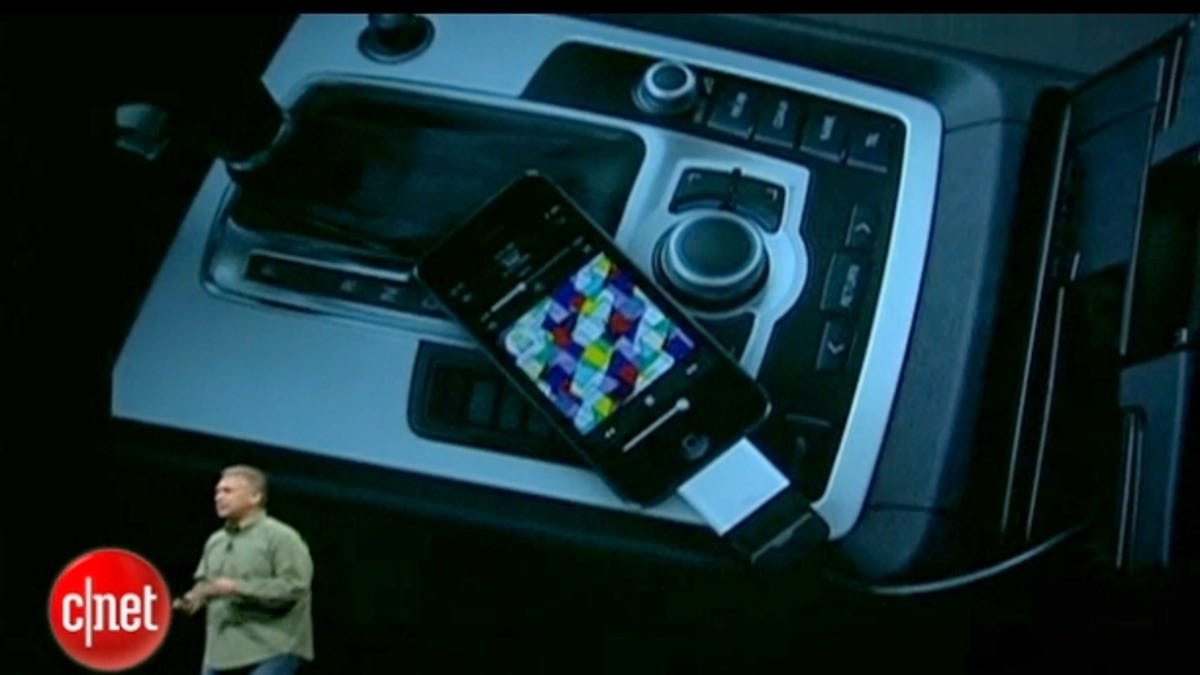iPhone 5, new iPod, may leave some cars in the dust
Apple announced its Lightning connector for the iPhone 5 and iPod today, but its compatibility with existing cars is far from assured.

During today's event announcing the new iPhone and iPod, Apple V.P. Phil Schiller spent a little time talking about the Lightning connector, the port replacing the old 30-pin port on iOS devices. Although Schiller pointed out how Apple's adapter for the port would ensure backward compatibility, some car models are not likely to work with Lightning or the new adapter.
Schiller specifically mentioned how the adapter would work with existing iPod integration in cars, showing an image of an iPhone cabled to a car. The car shown in the photo was an Audi, identifiable by the distinctive MMI controller on the console. Audi uses a proprietary port for music devices; they come with adapter cables for Apple's 30-pin connector. However, the Audi console shown in the photo had the iPhone cable coming from the back of the console, odd because Audi puts its music device connector in the glovebox of most of its models. Schiller's photo could have been a mock-up.
The fact that the Lightning port uses eight purely digital pins calls into question whether the Lightning adapter would actually work with many cars' existing iPod or even USB ports. Current Kia and Hyundai models, and older BMW models, use an adapter cable that feeds the analog audio signal from the 30-pin connector to a 1/8-inch audio input, and a USB port to feed control signals between iPhone and car. Lightning does not have the capability to send an analog signal, so Apple's adapter will not work in those vehicles.
Many other cars use a simple USB port to connect to a white iPhone cable. In these systems, the car receives audio as a digital signal, and plays it through the speakers using the car stereo's own digital analog converter, so the new Lightning port should work with the new device's own cable.
CNET asked various automakers if their models would be compatible. As of this writing, Ford was the only one to respond. A spokesman for Ford said the company had been able to test iOS 6 with Sync, the system that integrates music players and phones with Ford vehicles. However, Ford was not able to test the new hardware from Apple, nor the release version of iOS 6, so would not comment on compatibility. Other automakers would likely have been in a similar position.

